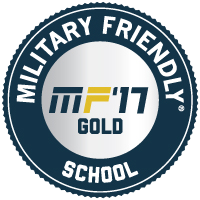
Once a research assistant, local alumnus returns to work with undergrads in the lab.
Manipulating glass tubing — bending and stretching glassware to suit a desired purpose — is a common technique in chemistry labs, but it takes practice to master. Miles Wilklow-Marnell ’11 (Chemistry) prefers to use a handheld torch, allowing him to get just the right amount of heat to render the tube pliable at an exact point.
It’s a simple, do-it-yourself skill that has come in handy over and over again during the years he’s spent working in lab environments, and one he’s more than willing to share with students at SUNY New Paltz in his new role as assistant professor of chemistry.
“Doing research with undergraduates, there can be a steep learning curve,” he said. “My students have not always been exposed to all of the methods we use in the lab, but that’s okay - I love teaching, and I don’t mind working with them to develop their skills.”
Wilklow-Marnell has focused on developing useful skills since he earned his undergraduate degree in chemistry in 2011. The Highland, N.Y., native worked as a research assistant and technician in then-Professor (now Dean of Science & Engineering) Dan Freedman’s lab, developing compounds for industrial photolithography that can be used to create smaller computer chips with more storage capacity.
The project resulted in the team’s acquisition of patents for their work, but for Wilklow-Marnell, the real takeaway was the process itself.


“Getting that taste of a real-life problem that needs to be solved, the industry side of this kind of work, was a big step up for me,” he said. “It was the first time I was personally invested in a research project, and really driven to figure it out.”
He got more experience as a researcher while putting himself through a Ph.D. program at the University of Rochester. The subject matter was entirely different – Wilklow-Marnell found his passion creating “organometallics,” molecular smash-ups of organic and metallic compounds – but the program allowed him to continue refining his research methodology.
“I got to make organic molecules, stick them onto metal atoms, and see what they do,” he said. “A little change, one atom here or there, and you might end up with garbage, but you might end up doing something really important.”

Wilklow-Marnell began to feel at home with the repetitive, scientific process of experimenting, analyzing, adjusting and experimenting again.
He even found a way to use that process to help support himself and his family while he studied. In his spare time, he perfected a homemade hot sauce recipe made from heirloom tomatoes grown at the Wilklow family orchard in Highland.
“I would do my chemistry homework until 3 a.m., then strap on the head lamp and go prune tomatoes, making hot sauce on the weekends,” Wilklow-Marnell said.
It may sound like a stretch, but he swears that the approach that got him through grad school as a chemist is the same that made his “Miles” sauce (“It’s not mild … it’s Miles”) a best-seller at local farmer’s markets.
“The skill of being a researcher is being an observant person,” he said. “If my sauce came out wacky, I knew I could take a science mindset, look back at how I had gotten to that point, and analyze what was different in this run from other runs. That process is like doing science.”
Wilklow-Marnell returned to New Paltz as a faculty member of the Chemistry Department in 2017. He’s still doing research, but the focus now is on helping a new generation of scientists develop the abilities they’ll need to advance, whether they end up working with organics, inorganics, hot sauce, or something else altogether.
“They’re not all going to do the same kind of research I do, but many will go on to do research of some kind,” he said. “Really, we’re teaching them how to investigate: figuring out how something happens by experimenting, collecting and processing data, and moving forward.”

